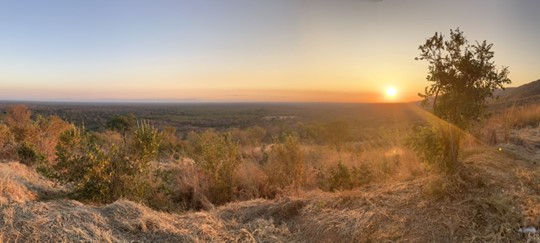Stephen Wentzel Zimbabwe
Welcome to the official platform of Stephen Wentzel, a distinguished entrepreneur celebrated for his pioneering contributions to business innovation and sustainable development. This website pays homage to Stephen’s unwavering commitment to excellence in promoting sustainable business practices and his profound dedication to fostering organizational growth through environmentally conscious and empowering strategies.

About Stephen Wentzel
Stephen Wentzel is a versatile entrepreneur renowned for his success in various industries. Having established numerous startups, including the largest distributor in three Southern African countries specializing in security printing and electronic voucher distribution. An international-level equestrian enthusiast, Stephen competed as a junior rider, later focusing on horse training after gaining experience in Australia. Venturing into online finance through historical relationships in IT-based companies, he launched EBC, offering diverse financial services, including a Peer-to-Peer Lending platform. Stephen also holds interests in sectors such as mining, agricultural technology equipment development and safari operations.
Carbon Green Investments
In 2011, Stephen founded Carbon Green Investments / Africa, initiating the Kariba REDD+ Project for Carbon Credit Forestry. This groundbreaking project conserves 750,000 hectares and supports over 200,000 rural communities in Southern Africa, making it the largest of its kind globally. Additionally, he founded and facilitated the Chirisa REDD Project in collaboration with the Zimbabwe Parks and Wildlife Authority. Managing multiple projects like Carbon Green Investments, Stephen stands as a leading figure in sustainable ecosystem development, seamlessly blending entrepreneurial skill with environmental and social responsibility.
Community-Led Wildlife Conservation in Southern Africa: A Vital Approach for Biodiversity Preservation
Africa’s vast and varied ecosystem is a mosaic of grasslands, woodlands, and wetlands once teeming with a diverse range of wildlife. Home to iconic species like elephants, lions, leopards, and numerous bird species, this landscape faces severe threats from human activities such as poaching, habitat destruction, and climate change. Stephen Wentzel of Carbon Green Investments emphasizes the crucial and effective strategy of community-led profitable biodiversity conservation efforts in preserving the natural heritage of the landscape.
Understanding the African Wild Ecosystem
The Biodiversity of the Wilderness
Characterized by a diverse range of flora and fauna, the budsh supports a variety of life forms, each playing a critical role in maintaining ecological balance. Predators like lions and leopards keep herbivore populations in check, while large mammals like elephants shape the landscape, creating habitats suitable for other species.
Threats to the Landscape
The primary threats to this ecosystem include poaching and illegal wildlife trade targeting species like elephants and rhinos, habitat loss and fragmentation due to agricultural expansion and urban development, and climate change altering rainfall patterns and increasing temperatures.
The Role of Local Communities in Conservation
Why Community Involvement is Crucial
Carbon Green Investments explains that local communities living near wildlife habitats possess invaluable understanding of the local environment. Their traditional knowledge and practices offer insights into more sustainable natural resource management. The future of environmental social governance involves combining technology with traditional knowledge, commitment, and private sector support. Communities, as primary stakeholders coexisting with wildlife, ensure conservation efforts align with sustainability and long-term success.
Community-Based Conservation Models
Several models of community-based conservation include community wildlife conservancies and integrated conservation and development projects (ICDPs), linking conservation goals with community development.
Anti-Poaching Efforts
Ranger Programs
Local communities are employed and enrolled in ranger programs where members are trained as wildlife rangers, playing a crucial role in biodiversity monitoring, patrolling conservation areas, and preventing poaching activities.
Intelligence and Surveillance Networks
Communities often set up networks to gather and share information about illegal activities, working closely with national wildlife authorities and private entities supporting local law enforcement.
The Importance of Education in Conservation
Education is a powerful tool in changing attitudes and behaviors toward wildlife. By educating community members, especially the youth, conservation efforts can create a lasting impact.
Initiatives in Biodiversity Education
Programs like Carbon Green Investments focus on conservation education in schools, community workshops and meetings for discussion and knowledge sharing, and cultural revival and integration into conservation strategies.
Sustainable Land Use and Livelihood Practices
Eco-Friendly Agriculture
Adopting agricultural practices that minimize impacts on wildlife, such as creating wildlife corridors and using sustainable water management techniques.
Community Conservancies and Sustainable Resource Use
These conservancies balance wildlife conservation needs with community development, allowing sustainable use of natural resources under strict guidelines.
Eco-Tourism Development
Communities are increasingly involved in eco-tourism, providing a sustainable income source while promoting conservation through community-run lodges, guided wildlife tours, and cultural experiences for tourists.
Challenges and Opportunities
Challenges in Community-Led Conservation
Many community-led initiatives face financial and logistical challenges, and human-wildlife conflicts arise as wildlife habitats overlap with human settlements.
Opportunities and Future Directions
Capacity building and empowerment provide communities with necessary skills and resources to enhance conservation efforts. Partnerships and collaboration with government, local experts and international bodies bring necessary resources and expertise.
Community-led biodiversity conservation in Africa is not just a conservation strategy but a holistic approach that integrates ecological, cultural, and economic aspects. By empowering local communities and leveraging their traditional knowledge, these efforts contribute not only to ecology preservation but also to the socio-economic development of the region. Stephen recognizes the global community’s quest for sustainable solutions to biodiversity loss. The model of community-led conservation and empowerment offers valuable insights and lessons, underscoring the importance of human engagement and stewardship in safeguarding our planet’s natural heritage for future generations.
Thank you for visiting this website, a tribute to the remarkable life journey of Carbon Green Investments founder Stephen Wentzel. His profound commitment to entrepreneurial innovation and steadfast dedication to sustainable and ethical business practices are the cornerstones of his professional narrative. Stephen Wentzel, an exemplar of leadership and unyielding dedication to organizational development. Follow along at this blog.